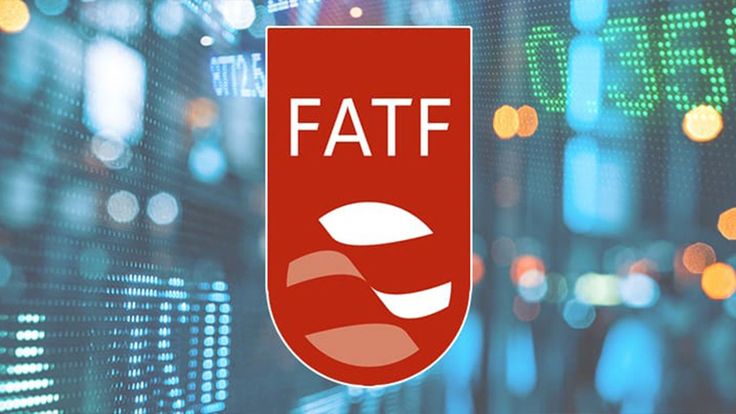
Atty. Mark S. Gorriceta and Atty. Edrian M. Apaya l July 19, 2024 l The Manila Times
Since 2010, the Philippines has generally trailed behind its ASEAN neighbors in attracting foreign investment. According to World Bank Group Data for 2023, the Philippines ranked sixth out of ten ASEAN countries in terms of Gross Domestic Product per Capita, and the last among ASEAN-5 countries. One contributing factor to this situation is the relatively low level of direct foreign investment. Unfortunately, despite interest from numerous investors in ASEAN countries, only a few are willing to invest in Filipino businesses, largely due to the Philippines’ status on the grey list set by the Financial Action Task Force (FATF), the global money laundering and terrorist financing watchdog.
The FATF publishes a list of countries that have insufficient anti-money laundering laws and measures within their respective jurisdictions. These countries are typically grouped into either the “black list” or the “grey list”.
Notably, the Philippines was previously listed in the black list, which comprises countries whose anti-money laundering/counter-terrorist financing measures are deemed inadequate according to FATF’s international standards or show insufficient effort toward compliance. Consequently, other countries are advised to exercise caution when dealing with persons or firms from these jurisdictions.
At present, the Philippines is included in the grey list together with twenty (20) other countries. These jurisdictions have committed to addressing their deficiencies in anti-money laundering and counter-terrorist financing. But why should we be concerned? Generally, countries on the grey list still face economic repercussions. For one, investors may hesitate to invest in businesses in these countries due to the associated risks. Studies suggest that a country on the grey list may experience a reduction of up to 10% in payments received from the rest of the world. Additionally, being in the grey list affects capital inflows, with a decline on average of 7.6% of the country’s GDP.
Individuals and entities may also encounter restrictions on cross-border transactions. For instance, our Overseas Filipino Workers may face higher transaction fees as banks enforce customer due diligence requirements, resulting in increased costs. There are also reports that Philippine-related transactions are facing heightened scrutiny or, worse, being denied or terminated.
The Deadline
Remarkably, despite passing its Anti-Money Laundering Act in 2001, the Philippines found itself on the grey list twenty years later, particularly in 2021.
While the FATF has recently lauded the country’s effort to address anti-money laundering deficiencies, the Philippines continues to be on the grey list. There are still noted shortcomings, such as the junket operations in relation to casinos, investigations and prosecutions of money laundering, and risk-based supervision of designated non-financial businesses and professions (DNFBPs).
Earlier this year, the government has self-imposed a deadline to exit the grey list by 2024. To kickstart, a whole-of-nation approach has been adopted, involving a collaboration among various government agencies, local government units and the private sector.
The Anti-Money Laundering Council (AMLC) has been ramping up its efforts to achieve this goal. One key action is the stricter enforcement of the 2021 Guidelines for DNFBPs. The AMLC is actively campaigning for DNFBPs to register and fulfill their obligations under the Anti-Money Laundering Act. Recently, the AMLC released the Guidelines on Compliance Optimization and Registration System, aimed at streamlining and simplifying the registration process for Covered Persons.
The AMLC has also taken the lead in conducting compliance checks on Covered Persons. Through these checks, the AMLC collaborates with Covered Persons to enhance and strengthen their anti-money laundering protocols. This underscores that a successful anti-money laundering campaign requires a collective effort and should not rest solely on the government’s shoulders.
Last but not the least, the AMLC emphasizes the importance of anti-money laundering training for the heads and employees of Covered Persons. In collaboration with the Securities and Exchange Commission (SEC), SEC-supervised entities are mandated to participate in trainings conducted by the AMLC. Proof of attendance to these trainings must be submitted to the SEC as part of their regulatory requirements.
Key Takeaways
The common “Juan” might wonder: What does it mean for me if the Philippines is on the grey list? Besides the challenges faced by local businesses, being on the grey list tarnishes the country’s reputation, which could affect how other nations view Filipino citizens. Reduced investments also hinder economic growth.
It is crucial to recognize that combating money laundering is a shared responsibility among all stakeholders. With the whole-of-nation approach and the government’s deadline, we hope the Philippines will achieve a graceful exit from the grey list.
===
Atty. Mark S. Gorriceta is the Managing Partner of the Corporate Group and head of the Technology Media and Telecommunications Group of the Gorriceta Africa Cauton & Saavedra (Gorriceta). He has been reocgnized as one of the country’s Top 100 Lawyers from 2020 to 2023 by the Asain Business Law Journal. Atty. Edrian M. Apaya is a Junior Partner at Gorriceta, and is a key member of the Labor, Litigation and Transportation Practice Groups of the Firm. The firm represented by Atty. Gorriceta is a member of FINEX. The views and opinions expressed above are those of the authors and do not necessarily represent the views of FINEX. (Photo from Pinterest)
